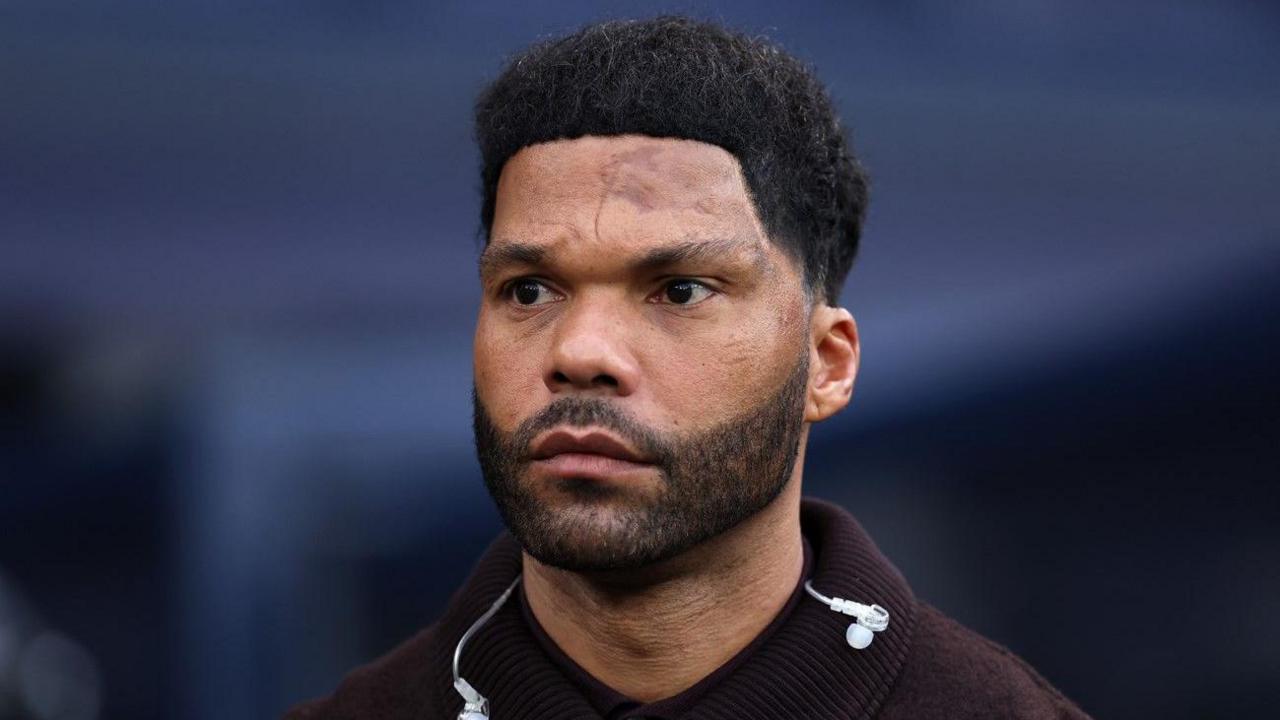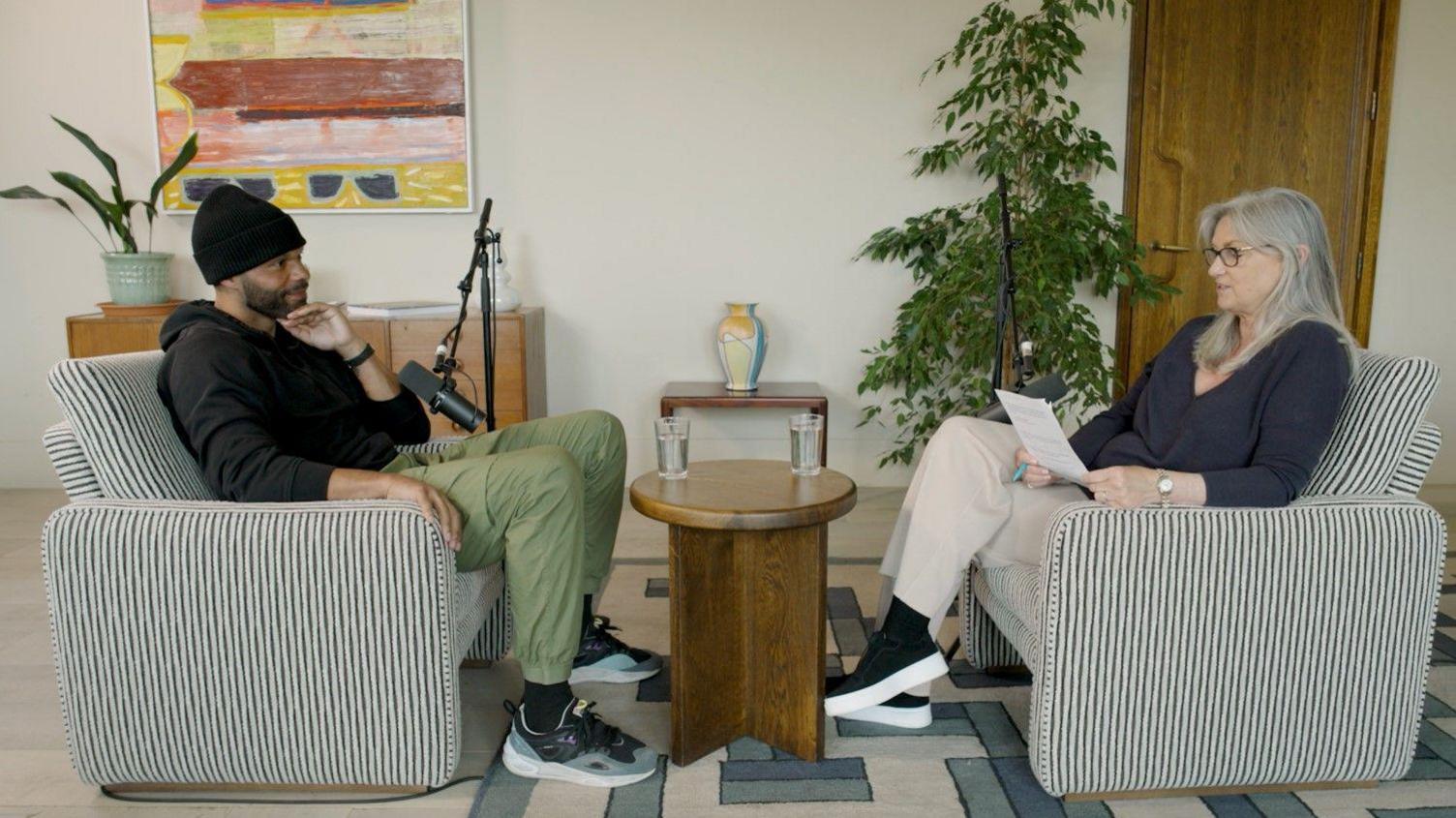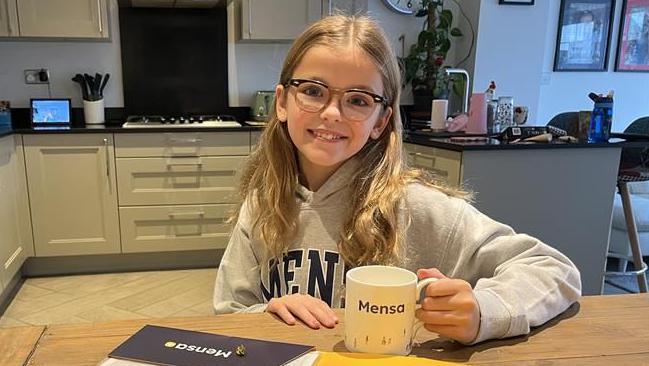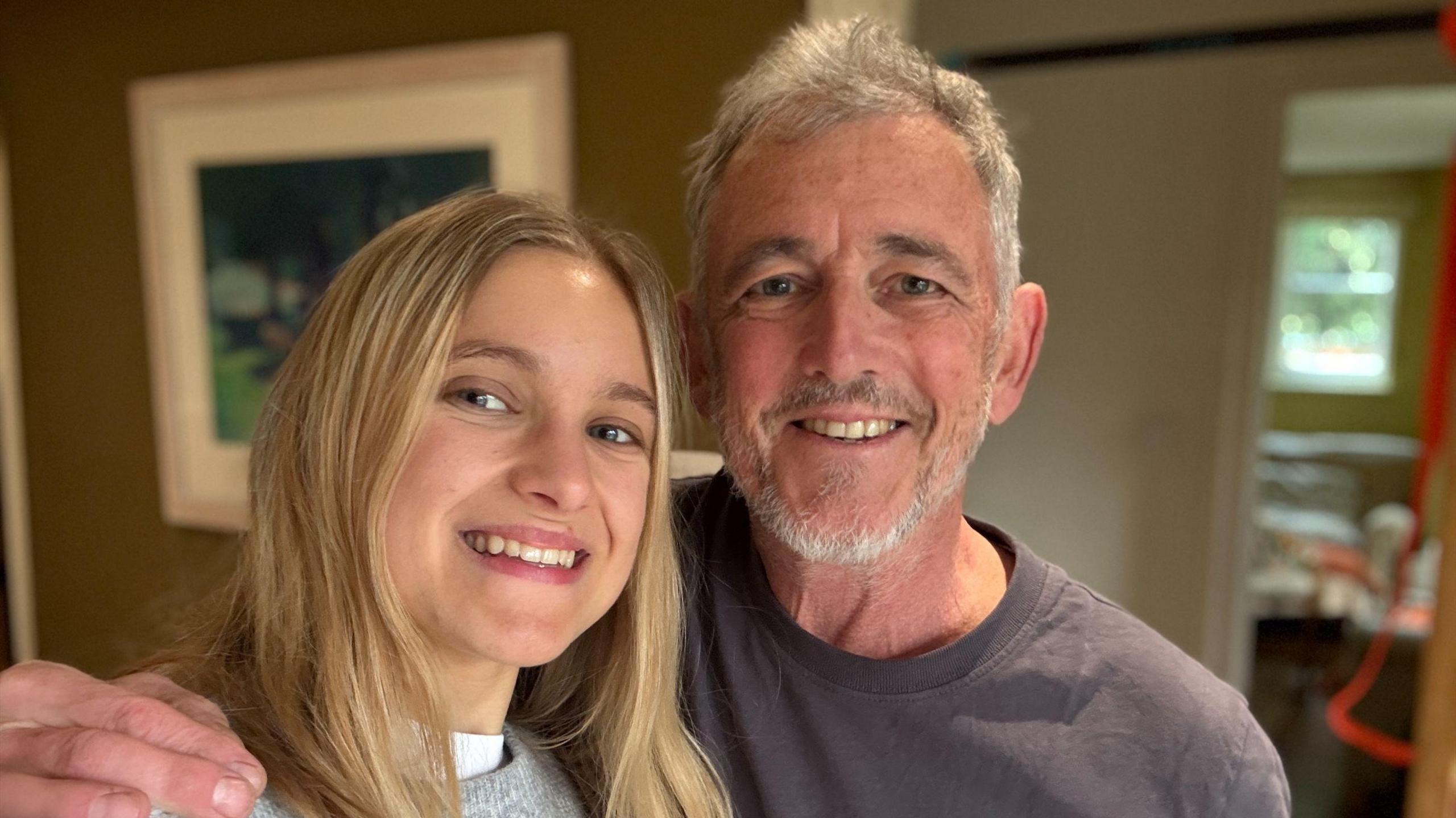Dyslexia helped me as a pro-footballer - Lescott

Joleon Lescott said dyslexia had also helped him with the "way I process things".
- Published
"I was deemed one of the slow students, so obviously going into my career and adult life I learned.... there's a diagnosis for it and it was dyslexia".
Ex-Premier League and England footballer Joleon Lescott has reflected on his time at school, at an event organised by the Made By Dyslexia (MBD) charity.
Lescott, 43, who played more than 200 times for Wolves, also stressed that while he struggled, the dyslexia was actually an advantage for him as an athlete.
He said he had had difficulty with reading and remembered "the dreaded paragraph we all had to read in English class, like the panic I used to go through".
Recalling the anxiety, he said: "[The] build-up knowing that there's four more pupils before me - which bit am I gonna have to read and then... [trying] to learn the words in the paragraph without listening to what's being said before.
"To the pupils next to me I would say, 'Oh, what does that say?', just like trying to disguise it in a way of [making]... it like I was trying to think ahead."
'Unlock your performance'
Lescott, who also played for Everton, Manchester City, West Bromwich Albion, Aston Villa and Sunderland, said dyslexia had also helped him with the "way I process things".
Lescott was speaking in support of a new Sports & Peak Performance course offered free by the University of Dyslexic Thinking, external, which is hosted by the Open University and run by MBD.
It is designed to "find out what makes dyslexics unstoppable on the sports field and discover how to unlock your own peak performance", says MBD founder Kate Griggs.

Lescott has been speaking with Made By Dyslexia founder Kate Griggs
In football, for example, he said: "If that pass goes there, then this is an option for that and that may lead to that.
"So, it would just help me process things a lot faster and like I said I'm a very visual learner, which in my career I had to be, so.... [it] definitely played a part in success I had."
Lescott said he would be "figuring out what are the options and the processes and narrowing 'em down to the realistic ones".
He added the dyslexia helped him "process the options faster and get to an outcome rather than dwelling on things".
'Visual spacial awareness'
Ms Griggs said that in "whichever sport you look at, dyslexic thinkers push boundaries, smash records and inspire us", adding that dyslexia "is a different way of processing information".
"Dyslexic sports people are able to memorise play," said Ms Griggs, highlighting areas including "visual spacial awareness... the perception of yourself and how you move and the impact that will have on the game" and the use of intuition.
"All the things that Joleon's described and sports people use to be successful and good at sport, are all very strong dyslexic thinking skills," she added.
Lescott added that his dyslexia didn't leaving him struggling with maths in the same way.
"I was able to kind of avoid a lot of probably teasing and bullying 'cos [of] the fact that when we get to play time or PE or more physical lessons, I was able to stand out," he explained.
Get in touch
Tell us which stories we should cover in Wolverhampton
Follow BBC Wolverhampton & Black Country on BBC Sounds, Facebook, external, X, external and Instagram, external.
Related topics
- Published31 October

- Published15 October

- Published13 June
